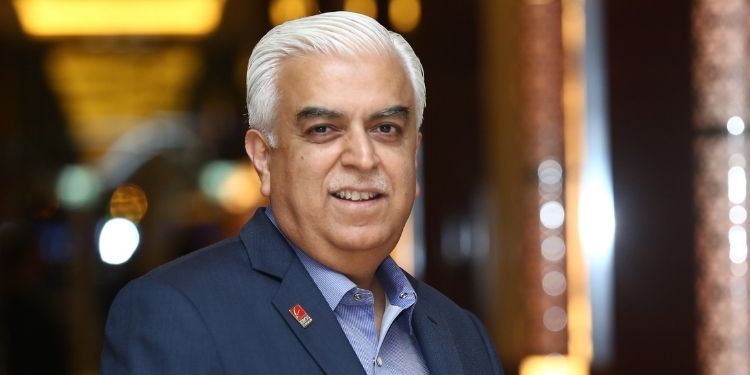Startup ecosystems are popping up all across the country and the world, with varying levels of success. Let us focus on the mix of ingredients that are needed to make a good startup ecosystem thrive over time. These are not any hard and fast rules, but rather good guiding principles which one can observe in great and successful start-up destinations in the world.
Some of the key ingredients of a truly good start-up ecosystem are:
- -It always starts with great ideas which turn into great businesses. Start-up ecosystems must have access to great ideas. Going forward, and into the future, we would seriously need to think about building super “platforms” over “features”, and loads of “wisdom” over just interesting “widgets. The ratio of successes is very small. Therefore, working on really big ideas would be of immense help.
- -Access to talent, and, over time, building up a strong bench-strength of budding entrepreneurs. Also, entrepreneurs who have learned from prior mistakes, are ultimately going to dictate the success of their businesses, and in turn, the success of the ecosystem.
- -The best ideas and the best talent are useless without the capital to fund their vision. It is critical that the capital is available to embrace each stage of development, from seed too early to growth stages of businesses. Having seed stage, but not Series A or Series B stage, is a recipe for a likely “flame-out” of that startup, when they hit the wall in that level of their growth.
- -Access to Customers. To me, this is the most important piece. Customers drive revenues. Revenues impress investors. Investors fund growth. Growth leads to big exits. Big exits lead to a robust ecosystem. This often means that there need to be tight partnerships between early stage ideas with later stage companies to buy those services. Especially those who are supportive of helping the local startup community.
Some of the key stakeholders of a robust ecosystem are:
- Entrepreneurs – A good ecosystem would need experienced teams running startup businesses. With a good balance of needed skill sets from planning, strategizing, use of technology and understanding a fair amount of financing.
- Mentors – First-time entrepreneurs need to be able to ask questions from experienced leaders, to help get them up the learning curve, without making the same mistakes of their predecessors. A good pool of mentors who are willing to give back in some form to build up a strong legacy.
- Investors – These could be small individual angels, organized angel networks, venture capital firms, private equity firms, family offices, corporations or other funding sources. A steady and well understood money flow begins to build confidence in the ecosystem.
- Incubators – They could facilitate everything from shared office spaces for startups, going to formal startup accelerator programs with formal educational curriculum. The breed of entrepreneurs tend to learn from each other, when they are in close proximity to each other.
- Universities – A lot of the super business ideas are born from the research and ideas inside of universities. Having a healthy technology transfer process for these ideas to be monetized by business leaders is key.
- Corporations and Large private business houses – Big companies can help in many ways. They invest through corporate venture capital funds. They become potential customers of new local startups. They have pain points of their own, that a local startup can build and solve for them. They are often the exit for startups that have gotten large in size.
- Associations/Events – There are many groups in town that help organize and propel the ecosystem. This could be industry trade associations, venture capital associations, entrepreneur networking groups and chambers of commerce.
- Government – Whether it is at the city, county or state level, the local government can and does play a very important role. That could include providing tax incentives for startups to launch in their city, tax free profits on any capital gains in a startup (to help stimulate investment), passing ecosystem friendly laws (like free access to the internet), or establishing venture capital funds with a portion of their treasury, granting of long term residency visas to lock in potential talent.
- Service Providers – The lawyers, accountants, bankers, recruiters, agencies, advisors, and consultants in the community, all play a role. The more experienced they are with startups, the better advice they will bring to the ecosystem.
Once a startup is successful, money that simply goes into the bank account, or into safe real estate investments, does not help the ecosystem. The money needs to be rounded back into the community.
If we learn lessons from Silicon Valley, it prides itself on “failure as a badge of honor”, as the lessons learned in one bad startup, will apply to the next good startup.
It takes a couple cheerleaders at the top that are going to “plant the flag” and have everyone rally around those goals for the community. Preferably, somebody that can put their money where their mouth is, and can lean on their deep reservoir of key relationships in our region.
It is generally harder to build a robust community in smaller towns. There simply isn’t enough activity, breadth of industries or depth of expertise in any one industry to be effective. Better to be in a town big enough to support an ecosystem, or prepare for a fair amount of travel between a bunch of smaller regions that have been aggregated into one community.
The best startup ecosystems feed off each other. Think about the collaboration happening between New York and Boston startups. Or, between Bengaluru and Silicon Valley.
Ecosystems are not built in years, they are built over decades. That is why Silicon Valley’s startup ecosystem is as big as it is; they have literally been working on it since the 1970’s, a fine tuned machine after 40 years of optimization. And some of that expertise decided to relocate and come back to India about two decades ago to create a vibrant ecosystem in cities like Bengaluru and Hyderabad.
This article is authored by Niranjan Gidwani, Consultant Director and Member UAE Superbrands Council and the former CEO of Eros Group Dubai.

















